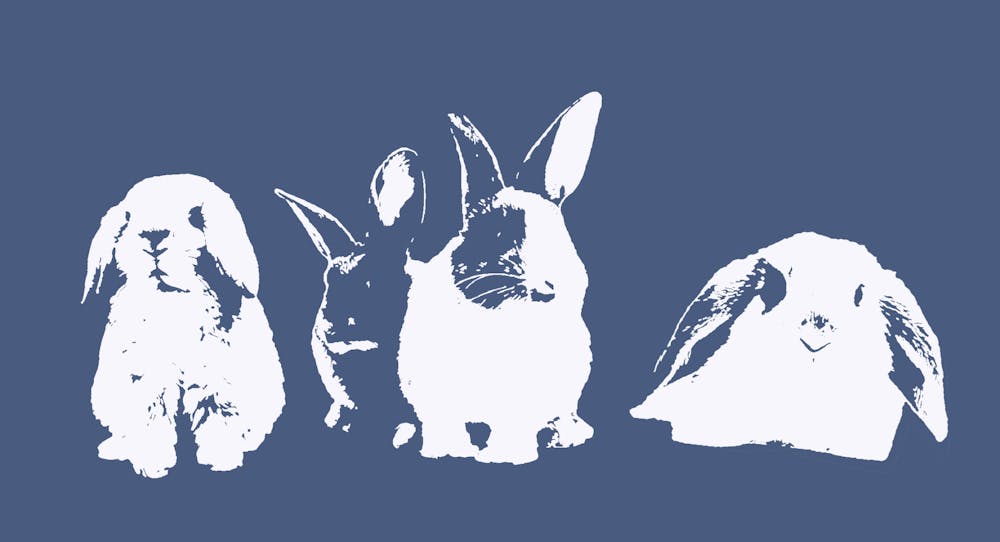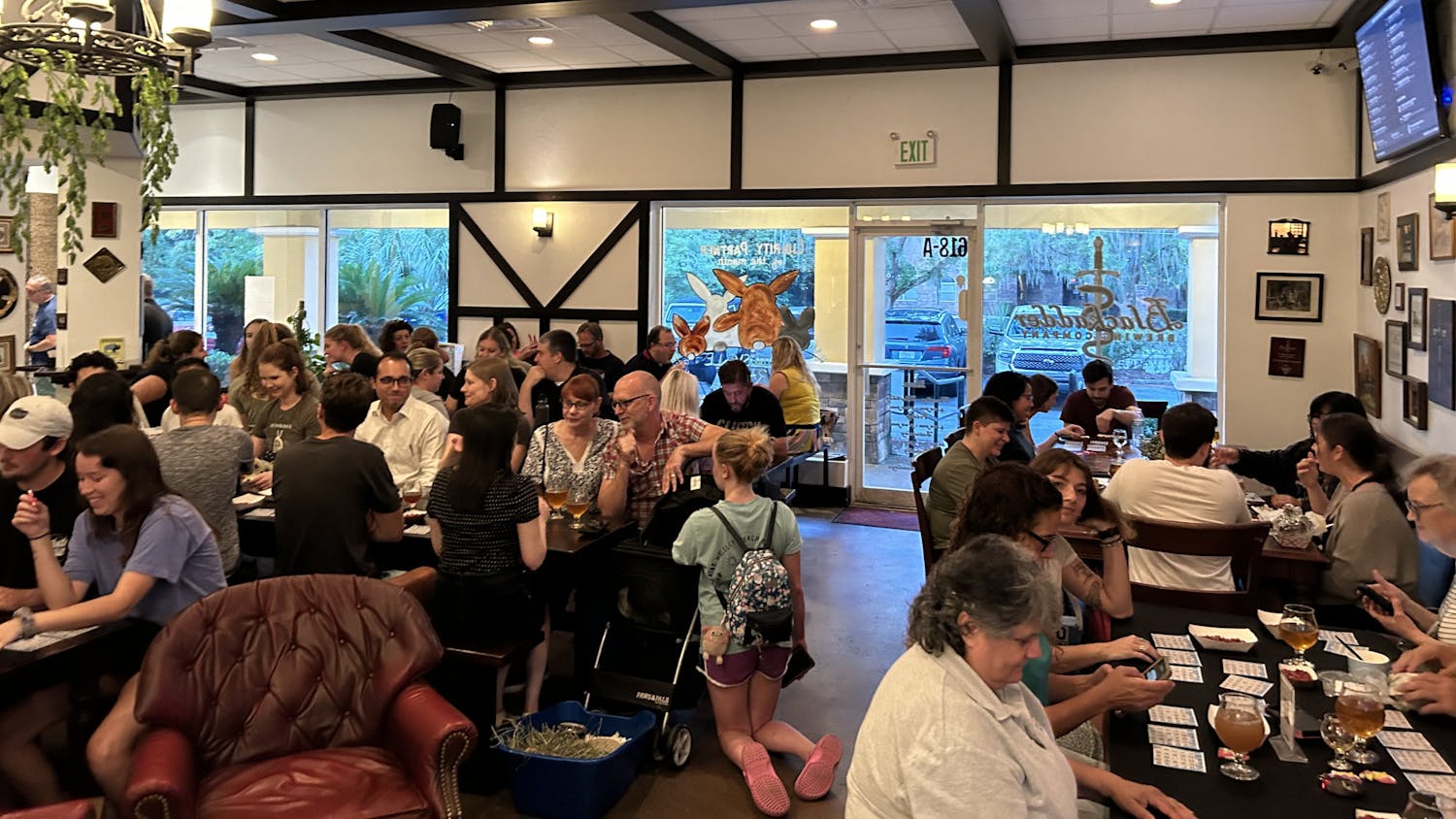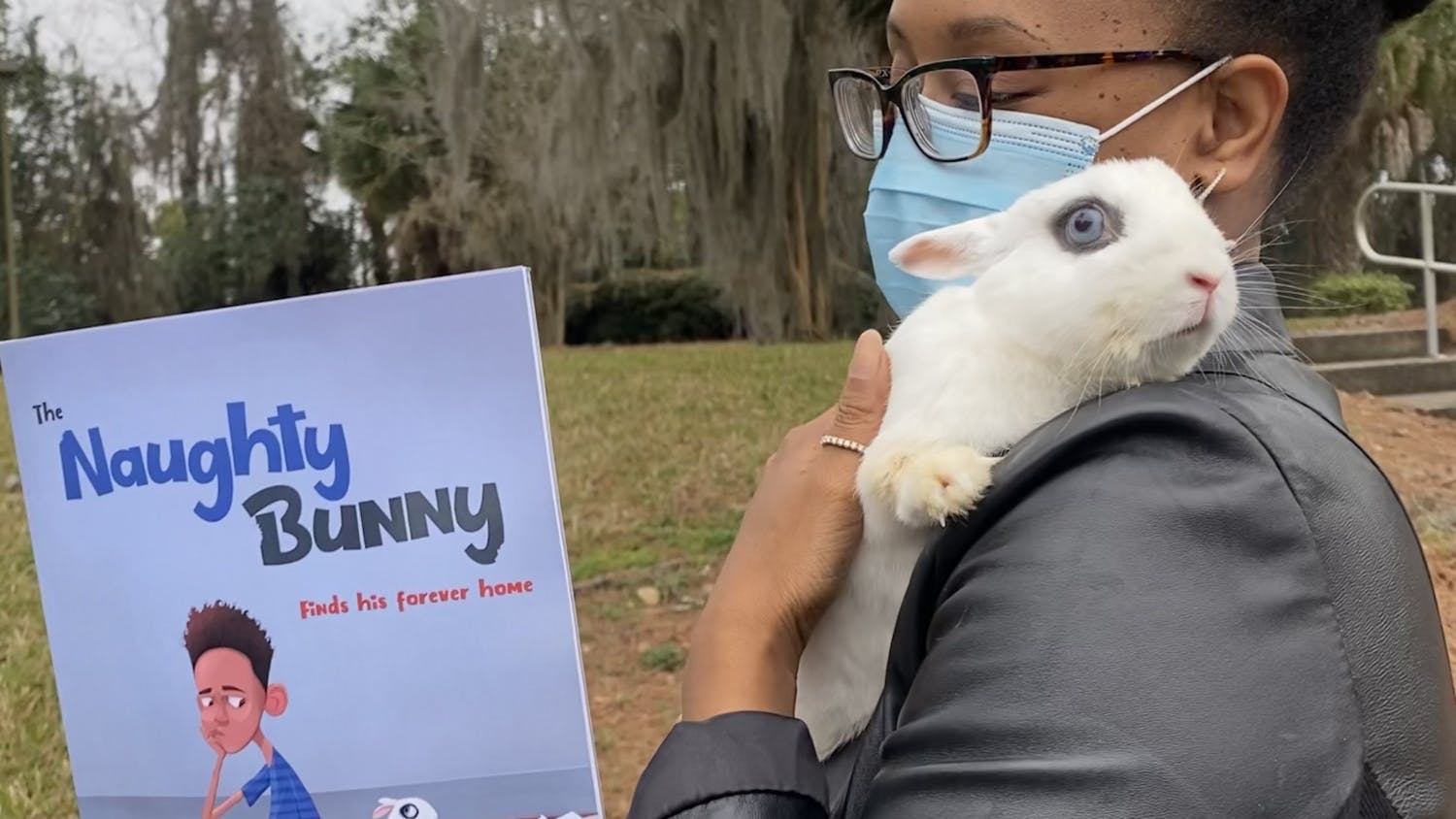Easter is a holiday known for sweet marshmallow chicks, pastel-woven baskets and, of course, the ever-mysterious Easter Bunny.
But the impacts of this floppy-eared icon stretch beyond childhood memories of early morning egg hunts to a much more consequential extent — one that is particularly dangerous for domestic rabbits.
Rabbits are the third most popular pet in the United States, behind cats and dogs, as well as the third most abandoned, according to National Geographic.
They don’t wake the neighbors by barking too loud or claw your couch upholstery to shreds like other pets, but they do come with unique quirks like chewing wires and loudly thumping their feet when they’re mad.
Due to this, rabbit advocates urge those interested in adoption to do their research before adopting, especially during Easter, when it’s estimated about 80% of those purchased will die or be abandoned within the first year.
Kathy Finelli is the executive director of Gainesville Rabbit Rescue, a nonprofit dedicated to rehabilitating and putting rescued rabbits up for adoption.
Though Finelli does not notice an increase in adoptions during the Easter season, she does notice an increase in requests to take rabbits two to three months later.
“We refer to [Easter] as the Easter Bunny dump season,” Finelli said.
Over the past two years, Gainesville Rabbit Rescue has witnessed an increase in rabbit surrenders, particularly in the months following the Christmas season.
Finelli attributes this trend to a common culprit — COVID-19.
“Perhaps [the rabbits' owners were] working from home, and they think they have the time, so they did some impulse purchasing,” she said. “And on the other side, there has been a terrible increase in the amount of rabbits that have been found loose.”
Rabbits require a diverse diet of hay, pellets and fresh foods, as well as a large space to roam, Finelli said.
As naturally social animals, they do best in environments where their social needs are attended to. When a second rabbit is not an option, the responsibility of companionship falls on the owner.
Their specific lifestyle necessities lead unprepared rabbit owners to give them up to shelters or leave them outside to the elements of nature.
Releasing domestic rabbits into the great outdoors may not be a romantic return to the natural circle of life, but rather, a death sentence. According to the House Rabbit Resource Network, their diet and dependence on humans make them highly vulnerable to starvation and predators.
With these serious consequences in mind, Gainesville Rabbit Rescue has a detailed adoption process and a list of questions for potential owners to ask themselves before bringing a bunny into their lives.
“Success for us is not necessarily having an adoption,” she said. “Success for us is having someone tell us, ‘I was going to get a baby bunny, but I spoke with you, and I realize I’m not ready for that.’”
Though their care takes getting used to, rabbits may be an ideal pet for many aspiring animal owners.
Lauren Lavernia, a 20-year-old UF health science junior, lives in a single dorm with her emotional support rabbit, Winifred, who goes by “Winnie” for short.
The two make a great team: Lavernia provides a large space to roam, a quiet environment, leafy greens and the occasional fruit treat, while Winnie provides affectionate cuddles and loyal companionship.
Rabbits are crepuscular, meaning they are most active at dawn and dusk, which aligns conveniently with the times Lavernia is at home.
“[Winnie] is 20 times better than I could have ever imagined,” she said. “She’s honestly so great. She’s like a weird-shaped cat in my brain.”
Lavernia said rabbits can be easy to care for, as long as you are mindful of their specific needs.
“We both have awful anxiety so we get along well in that sense,” Lavernia said. “I think she’s a perfect college pet for me.”
Another factor to consider is rabbits’ lifespans, which range from eight to 12 years.
Emily Pitocchi, a 19-year-old Sante Fe College animal sciences freshman, still has her first rabbit named Binky, whom she adopted nine years ago.
“I rescued [Binky] and three other bunnies since then and some of them came from horrible care,” Pitocchi said. “If they are not a priority they can sadly be forgotten about.”
Contrary to popular belief, Pitocchi said rabbits should not be fed high quantities of carrots, which can give them health problems like obesity, digestive problems and tooth decay.
Uma Raja, a 24-year-old University of Georgia graduate student, volunteered at Gainesville Rabbit Rescue when she attended UF in 2019.
The experience led her to foster two bunnies, Mochi and Cocoa, the latter she later adopted.
“They have a lot more personality than people think, and they are intelligent,” Raja said. “They know when it’s time to be fed, and they recognize different people.”
Though a small, mostly silent creature, rabbits can significantly impact the people around them. According to the pet therapy nonprofit Love on a Leash, rabbits’ calm nature and soft fur make them an ideal therapy pet.
After her mother passed away unexpectedly in 2022, Raja said she felt saved by Cocoa’s ‘unconditional love’ during the hardest time of her life.
“In the hard moments of my life, [a pet] is so innocent and sweet,” she said. “That really is the most grounding thing you could have.”
Contact Bonny Matejowsky at bmatejowsky@alligator.org. Follow her on X @bonnymatejowsky.
Bonny Matejowsky is a fourth-year journalism major and editor of The Avenue. When she’s not writing, you can find her delicately crafting a Pinterest board or at a local thrift store.






